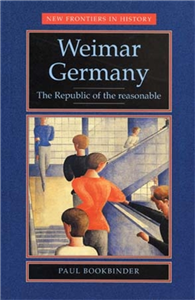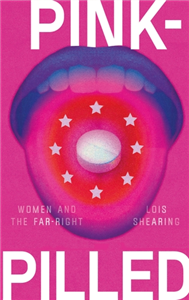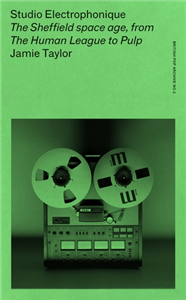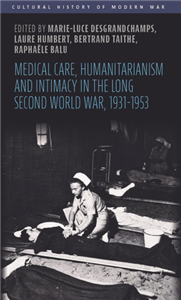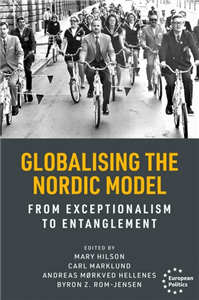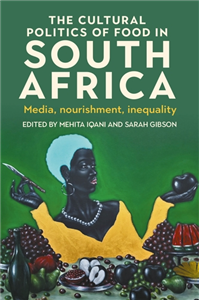Your Search Results
-
Promoted ContentThe ArtsFebruary 2019
Contemporary Korean cinema
Culture, identity and politics
by Hyangjin Lee
The first in-depth, comprehensive study of Korean cinema offering original insight into the relationships between ideology and the art of cinema from East Asian perspectives. Combines issues of contemporary Korean culture and cinematic representation of the society and people in both North and South Korea. Covers the introduction of motion pictures in 1903, Korean cinema during the Japanese colonial period (1910-45) and the development of North and South Korean cinema up to the 1990s. Introduces the works of Korea's major directors, and analyses the Korean film industry in terms of film production, distribution and reception. Based on this historical analysis, the study investigates ideological constructs in seventeen films, eight from North Korea and nine from South Korea.
-
Promoted Content2023
Textbook of Korean Medicine
Medicinal drugs and formulations
by Dr. Kenny Kuchta, Prof. Dr. Hans Wilhelm Rauwald, Hans Rausch and Dr. Raimund Royer
The consistent and evidence-based development of Korean medicine in many clinical application areas has significantly improved its international status in recent years. The basis for this development is one of the most important medical books in Korea, the „Donguibogam“, a clinical lexicon of applications compiled about 400 years ago; at that time the traditional work also enjoyed the highest recognition in China. In 2009 it was included in the „Memory of the World“ register of UNESCO. Even now after 400 years, it still serves as a manual for writing prescriptions for many physicians in Korea, and testifies that the understanding of nature and human disease patterns is still current and clinically applicable even in the modern industrialised world. This work provides ■ understanding for Korean medicine, ■ many selected medicinal formulations and their fields of application, ■ the description and evaluation of important traditional single remedies, ■ the corresponding drug monographs with information on analytical testing
-
 Trusted Partner
Humanities & Social SciencesSeptember 2013
Trusted Partner
Humanities & Social SciencesSeptember 2013The Spanish Socialist Party and the modernisation of Spain
by Paul Kennedy, Steven Fielding, John Callaghan, Steve Ludlam
This book considers the most electorally successful political party in Spain, the Spanish Socialist Workers' Party (PSOE), which was in government for two of the three decades since it won office under Felipe González in 1982. Providing rich historical background, the book's main focus is on the period since General Franco's death in 1975. It charts Spain's modernisation under the PSOE, with a particular focus on the role played by European integration in this process. Covering events including the 2011 general election, the book is one of the most up-to-date works available in English and will be of great interest to academics and undergraduate and postgraduate students in the field of Spanish and European studies. ;
-
 Trusted Partner
Politics & governmentJune 2001
Trusted Partner
Politics & governmentJune 2001From votes to seats
The operation of the UK electoral system since 1945
by Ron Johnston, Charles Pattie, Danny Dorling, David Rossiter
The British electoral system treats parties disproportionately and differentially. This original study of the fourteen general elections held between 1950 and 1997 shows that the amount of bias in those election results increased substantially over the period, benefiting Labour at the expense of the Conservatives. Labour's advantage peaked at the 1997 general election when, even assuming there had been an equal share of the votes for the two parties, it would have won 82 more seats than its opponents. This situation came about because of different aspects of two well-known electoral abuses - malapportionment and gerrymandering. With the use of imaginative diagrams the book examines these processes in detail, illustrating how they operate and stresses the important role of tactical voting in the production of recent election results.
-
 Trusted Partner
Teaching, Language & ReferenceFebruary 2012
Trusted Partner
Teaching, Language & ReferenceFebruary 2012Workers, state and development in Brazil
Powers of labour, chains of value
by Benjamin Selwyn
How do changing class relations contribute to processes of capitalist development? Within development studies the importance of class relations is usually relegated to lesser status than the roles of states and markets in generating and allocating resources. This book argues that the changing class relations are central to different patterns of capitalist development and that processes and outcomes of class struggle co-determine the form that development takes. Workers, State and Development in Brazil, nominated for the International Political Economy Group (IPGG) Book Prize 2013 and now available in paperback, illuminates these claims through a detailed empirical investigation of class dynamics and capitalist development in North East Brazil's São Francisco valley. It details how workers in the valley's export grape sector have won significant concessions from employers, contributing to a progressive pattern of regional capitalist development. The book will appeal to students and researchers interested in processes of capitalist development, agrarian political economy and international political economy. ;
-
 Trusted Partner
Literature & Literary StudiesDecember 2005
Trusted Partner
Literature & Literary StudiesDecember 2005Pat Barker
by John Brannigan, Daniel Lea
This book provides a comprehensive account and critical analysis of the literary career of Pat Barker. It offers readings of Barker's innovations in narrative form, her revisionist perspectives on history, class and gender, and her preoccupation with themes of trauma, haunting and terror. It also analyses the reasons for her success and significance as a novelist. The chapters draw on contemporary theories of critical realism, gender and social identities, memory and narrative, in order to outline the debates with which Barker's work has consistently engaged. Brannigan argues that Barker is one of the most important writers in modern English literary history. She is principally renowned and widely acclaimed for her 'Regeneration' trilogy, the last volume of which, 'The Ghost Road', won the Booker Prize in 1995. In recent novels, Barker has continued to deal with controversial and shocking themes, including child murderers and the meanings of 'terror' in the contemporary world. ;
-
 Trusted Partner
Humanities & Social SciencesOctober 1996
Trusted Partner
Humanities & Social SciencesOctober 1996Weimar Germany
The republic of the reasonable
by Paul Bookbinder
The Weimar period, which extended from 1919 to 1933, was a time of political violence, economic crisis, generational and gender tension, and cultural experiment and change in Germany. Despite these major issues, the Republic is often treated only as a preface to the study of the rise of Fascism. This text seeks to restore the balance, exploring the Weimar period in its own right. Amongst the topics discussed are: Weimar as the avant-garde artistic centre of Europe in the 1920s when many cultural figures were politically engaged on both sides of the political spectrum; Weimar as a German state racked by conflict over questions of morality versus ideas of greater sexual freedom for women, homosexual rights, abortion and birth control; the struggle to win the hearts and minds of German youth, a struggle won decisively by the right-wing; and Weimar as the first German state in which women played a significant political role. ;
-
 Trusted Partner
Humanities & Social SciencesFebruary 2025
Trusted Partner
Humanities & Social SciencesFebruary 2025Pink-pilled
Women and the far right
by Lois Shearing
A daring investigation that explores how women are targeted and recruited by the far right. As the far right has gained popularity and acceptance around the world, its ranks have swelled with an unlikely category of members: women. Women play significant roles in far-right movements, acting as propagandists, prizes to be won and mother-warriors of the nation. But up to now their activities have been largely overlooked. In Pink-pilled, Lois Shearing provides a cutting-edge account of how the far right has used the internet to recruit women, while shedding light on what life is like for women within these movements, including their experiences of misogyny and violence. Understanding how and why women join movements that explicitly aim to restrict their autonomy is essential if we want to fight back. Pink-pilled offers key insights for countering women's radicalisation and building communities resistant to far-right thought.
-
 Trusted Partner
The ArtsSeptember 2014
Trusted Partner
The ArtsSeptember 2014The war that won't die
The Spanish Civil War in cinema
by David Archibald
The war that won't die charts the changing nature of cinematic depictions of the Spanish Civil War. In 1936, a significant number of artists, filmmakers and writers - from George Orwell and Pablo Picasso to Joris Ivens and Joan Miró - rallied to support the country's democratically-elected Republican government. The arts have played an important role in shaping popular understandings of the Spanish Civil War and this book examines the specific role cinema has played in this process. The book's focus is on fictional feature films produced within Spain and beyond its borders between the 1940s and the early years of the twenty-first century - including Hollywood blockbusters, East European films, the work of the avant garde in Paris and films produced under Franco's censorial dictatorship. The book will appeal to scholars and students of Film, Media and Hispanic Studies, but also to historians and, indeed, anyone interested in why the Spanish Civil War remains such a contested political topic. ;
-
 Trusted Partner
The ArtsApril 2025
Trusted Partner
The ArtsApril 2025Studio Electrophonique
The Sheffield space age, from The Human League to Pulp
by Jamie Taylor
The amazing story of the home studio that helped launch some of Britain's most beloved bands. The Sheffield space age began in 1961, when local mechanic Ken Patten won a tape-recording competition by recreating the sound of a rocket launch using a pencil and a bicycle pump. In the decades that followed, the makeshift home studio he constructed became the launch pad for a group of young musicians who would shape the futuristic sound of 1980s pop. The Human League, Heaven 17, Pulp, ABC and others made their early recordings with Ken, whose DIY ethic was the perfect fit for a city facing industrial decline but teeming with ideas. Studio Electrophonique tells the story of a generation seeking new frontiers in music, using everything they could lay their hands on - from science fiction novels to glam rock, Dada art and cheap electronics - to get there. Drawing on original interviews with Jarvis Cocker, Martyn Ware, Mark White and others, it brings to light a world of humour, charm, creativity and unfounded yet undaunted self-belief.
-
 Trusted Partner
The ArtsMarch 2001
Trusted Partner
The ArtsMarch 2001Contemporary Korean cinema
Culture, identity and politics
by Hyangjin Lee, Mary Norris
The first in-depth, comprehensive study of Korean cinema offering original insight into the relationships between ideology and the art of cinema from East Asian perspectives. Combines issues of contemporary Korean culture and cinematic representation of the society and people in both North and South Korea. Covers the introduction of motion pictures in 1903, Korean cinema during the Japanese colonial period (1910-45) and the development of North and South Korean cinema up to the 1990s. Introduces the works of Korea's major directors, and analyses the Korean film industry in terms of film production, distribution and reception. Based on this historical analysis, the study investigates ideological constructs in seventeen films, eight from North Korea and nine from South Korea. ;
-
 Trusted Partner
Business, Economics & LawJuly 2025
Trusted Partner
Business, Economics & LawJuly 2025Medical care, humanitarianism and intimacy in the long Second World War, 1931-1953
by Marie-Luce Desgrandchamps, Laure Humbert, Bertrand Taithe, Raphaële Balu
This book offers a micro-global history of humanitarianism and medical care during the 'long' Second World War, which challenges the traditional and Eurocentric chronological boundaries of 1939/1945. It takes as its starting point the Japanese invasion of Manchuria in 1931, which led to the progressive dislocation of the League of Nations, with the Japanese, German and Soviet departures in the 1930s. It ends with the termination of the Korean War in 1953, and the subsequent dismantlement of the first United Coalition and UN Peace enforcement operation. It considers the slow, messy and ambivalent transformation of humanitarian actors' relations to the suffering of distant others through a study of humanitarian encounters, practices, spaces and affects. Paying close attention to a variety of actors, such as French colonial doctors, Swiss ICRC delegates, Egyptian relief workers, Chinese-style physicians, Peruvian and Ecuadorian nurses or American member of the Unitarian Service Committee, the book provides a more holistic story of humanitarianism.
-
 Trusted Partner
Children's & YAAugust 2021
Trusted Partner
Children's & YAAugust 2021Tims geheimes Fußball-Tagebuch
Elf Freunde und ich
by Ocke Bandixen
Tim's Secret Soccer Diary - 11 Friends and I (Vol.1) What no one knew until now: Tim keeps a diary in which he tells of his almost normal life with school, annoying siblings and, of course, his soccer friend, the wonder striker. Above all, he notes down his ultimate coaching tricks. What happens in Volume 1: Hands off! Top secret! The game against Ludwigsbrück is coming up, the fearful opponent of the team Tim coaches. They have a real secret weapon: the so-called pudding bomber, with the hardest shot in the league! Tim really needs good tactics and already writes his ideas for the next game in his diary in the bathroom in the morning. Here, even the toothbrushes in the cup inspire him to a certain lineup. Tim has an idea of what tactics he can use to stop him. But will it work in the big game? And of course, there's our ace striker, who is supposed to give tips for the big game. How can they stop this pudding bomber? Fortunately, the two have worked out a tactic, which Tim communicates to his team and which is also adjusted again in the game. A coach has to be flexible. And in the end, of course, the decisive goal falls for Hegenwald, Tim's team. They have won the big game. Tim, of course, records everything in his diary! • For all soccer-loving children and fans of Greg's Diary and Ace Striker • Funny and fast-paced narration • Illustrated in black-and-white by Dominik Rupp
-
 Trusted Partner
July 2021
Trusted Partner
July 2021The World of the North
Between Ragnarok and welfare utopia: A cultural-historical deconstruction
by Bernd Henningsen
— Analysis of how we view Europe's North and how this image emerged — An outsider's perspective on Nordic societies and their self image — Serves as an introduction into Northern European culture and society Our image of Northern Europe has been shaped by projections and desires in the long history of encounters: berserkers and war atrocities, bad weather, beautiful nature, stable political systems, social welfare, equality and prosperity, peacefulness, low corruption, hygge and Bullerby – all this is part of the Nordic narrative. But what about the religious, linguistic and ethnic homogeneity, what about the muchvaunted Nordic cooperation? How do politics "work" in the North? Why are Northern Europeans the happiest people?
-
 Trusted Partner
Humanities & Social SciencesMarch 2026
Trusted Partner
Humanities & Social SciencesMarch 2026Globalising the Nordic Model
From exceptionalism to entanglement
by Mary Hilson
The five Nordic countries - Denmark, Finland, Iceland, Norway and Sweden - frequently attract attention as examples of a 'Nordic model'. The meanings of the term vary, but especially since the global financial crisis of 2008-9 the Nordic countries have often been portrayed positively, as examples of economic dynamism, innovation and social equality. Studies of these images of the Nordic countries and Nordic region and their international circulations are now a well-established field of research. This volume explores how the Nordic model has been shaped by global entanglements, in exchange not only with Western Europe and North America, but also with the Global South. Drawing on selected case studies, the volume offers new perspectives on the meanings of the Nordic model and Nordic exceptionalism in a global context during the half century since c. 1970.
-
 Trusted Partner
Literature & Literary StudiesJuly 2022
Trusted Partner
Literature & Literary StudiesJuly 2022Nordic Gothic
by Maria Holmgren Troy, Johan Hõglund, Yvonne Leffler, Sofia Wijkmark
Nordic Gothic traces Gothic fiction in the Nordic region from its beginnings in the nineteenth century, with a main focus on the development of Gothic from the 1990s onwards in literature, film, TV and new media. The volume gives an overview of Nordic Gothic fiction in relation to transnational developments and provides a number of case studies and in-depth analyses of individual narratives. It creates an understanding of this under-researched cultural phenomenon by showing how the narratives make visible cultural anxieties haunting the Nordic countries, their welfare systems, identities and ideologies. Nordic Gothic examines how figures from Nordic folklore function as metaphorical expressions of Gothic themes and Nordic settings are explored from perspectives such as ecocriticism and postcolonialism. The book will be of interest to researchers and post- and- undergraduate students in various fields within the Humanities.
-
 Trusted Partner
Humanities & Social SciencesDecember 2016
Trusted Partner
Humanities & Social SciencesDecember 2016South Korean civil movement organisations
by Amy Levine, Alexander Smith
-
 Trusted Partner
The ArtsJuly 2010
Trusted Partner
The ArtsJuly 2010Richard Lester
by Neil Sinyard, Brian McFarlane, Neil Sinyard
Richard Lester is of the most significant yet misunderstood directors of the post-war era. Indelibly associated with the Beatles and the 'swinging Sixties' because of his direction of A Hard Day's Night and Help and his joyous sex comedy The Knack, Lester has tended to be categorised as a modish director whose heyday passed when that decade's optimism slid into disillusionment and violence. This book offers a critical appreciation and reappraisal of his work, arguing that it had much greater depth and variety than he has been given credit for. His versatility encompasses the Brechtian anti-heroics of How I Won the War; the surreal nuclear comedy of The Bed-Sitting Room and the swashbuckling adventure of The Musketeers films. He has even, in his instinctively iconoclastic manner, cut Superman down to size. The book should win new admirers for a director with a gift of making movies whose visual wit and imaginative imagery reveal an intelligent and enquiring scepticism about heroes and society. Including comments from Lester himself and illustrations from his own private collection, the book is a must for film scholars and enthusiasts alike. ;
-
 Trusted Partner
January 1978
Trusted Partner
January 1978Warenform und Denkform
Mit zwei Anhängen
by Alfred Sohn-Rethel
Die Neuausgabe dieser 1971 vorgelegten Studien, deren außerordentliche Bedeutung für die marxistische Theoriebildung sich inzwischen erwiesen hat, erscheint vermehrt um zwei Arbeiten, die in den für Sohn-Rethel charakteristischen Vorstellungszusammenhang vom gesellschaftlichen Ursprung der Bewußtseinskategorien gehören: 1. »Von der Analytik des Wirtschaftens zur Theorie der Volkswirtschaft« (1936), 2. »Notizen von einem Gespräch zwischen Th. W. Adorno und A. Sohn-Rethel am 16. April 1965«, in dem Fragen der Tauschabstraktion und der »Produktionsform der Philosophie« erörtert worden sind (unveröffentlicht). – Die mit beträchtlicher zeitlicher Verspätung in die neuere erkenntnistheoretische und ökonomische Debatte eingeführten Schriften Sohn-Rethels haben, wie ihre internationale Rezeption bezeugt, im Laufe weniger Jahre überkommene Problemstellungen und Interpretationsweisen gründlich erschüttert. Die Einsicht, daß alle »Probleme der menschlichen Theorie in Wirklichkeit auf Probleme der menschlichen Praxis zurückgehen«, aus der heraus Sohn-Rethel seine Argumentation entfaltet hat, liegt, unter dem Gesichtspunkt der »funktionalen Vergesellschaftung«, in einem ersten Begründungsentwurf in den hier versammelten Studien vor. Sie bilden, insbesondere in ihrer erweiterten Ausgabe, das Fundament einer Theorie, die »sich die Wahrheitsfrage von der Geschichte der Menschheit vorgeben läßt.«
-
 Trusted Partner
Humanities & Social SciencesMarch 2026
Trusted Partner
Humanities & Social SciencesMarch 2026The cultural politics of food in South Africa
Media, nourishment, inequality
by Mehita Iqani, Sarah Gibson
Food is both a material system of nourishment, necessary for human survival, and a communicative system that signifies multiple meanings across human cultures. This book explores the cultural politics of food in the South African context, bringing together a range of disciplinary perspectives on the links between media, nourishment, and inequality. The chapters all highlight the multiplicity of meanings that food has in South African society. These include historical perspectives on the impact of colonialism, migration and apartheid had on food and foodways in South Africa; sociological interventions on food and society; aesthetic practices in relation to food; and mediated food cultures in South Africa. Taken together, the book critically explores the multiple ways in which food is never just food, and always linked to complex and shifting modalities of meaning and knowledge in the South African context.










